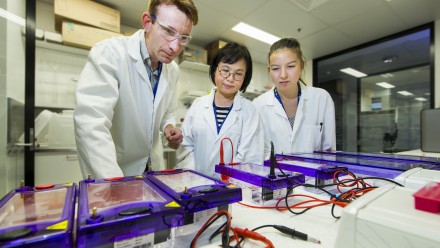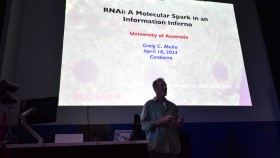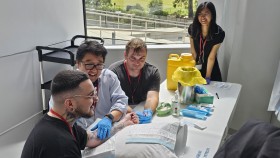ANU researchers find a way to guide the immune system to produce more powerful antibodies to fight malaria
ANU researchers have found a way to guide the immune system to produce more powerful antibodies to fight against malaria. The new work, published in the journal Cell Reports, could also help design vaccines against other major infections such as Influenza and HIV.
Most vaccines work by stimulating our immune systems to produce antibodies against invading germs. But not all antibodies are equally effective, explains Fiona Lewis who is co-first author on the study.
“Some antibodies just stick to the surface of the invading threat and don’t do very much. But the good ones can interfere with things that are critical for the survival of the pathogen, such as entering host cells”
These antibodies are called ‘neutralizing antibodies’ and are critical for protection against disease.
“We want our vaccines to induce as many of these neutralizing antibodies as possible” Lewis added.
One problem with developing vaccines is that they often induce a mix of useful and less useful antibodies. In some cases, the less useful antibodies can even out-compete the useful ones, limiting vaccine effectiveness. This is a particular problem with malaria vaccines.
Our best malaria vaccine induces antibodies to a protein in the surface of the parasite called the circumsporozoite protein. This protein contains a long repeating structure in the middle. This repeat provides a really powerful kick to the immune system, which makes large amounts of antibodies that target that specific area. However, the team found that the repeat acts as a decoy, distracting the immune system from making potentially more useful antibodies.

Mr Deepyan Chatterjee, PhD Student in the Cockburn group and co-first author in the study
“Those antibodies targeting the repeat are good, but not great” explains Deepyan Chatterjee, who is co-first author. “But we found that if we reduced the size of the repeating structure, we were suddenly able get the immune system to make antibodies targeting other parts of the parasite”. This could lead to a rethink for malaria vaccine design.
The study has implications beyond malaria though, for example, similar problems limit the effectiveness of influenza vaccines. Flu vaccines induce antibodies to a protein on the virus surface called the ‘head’, but the head changes often, which is why we need new vaccines each year.
“If it was possible to make vaccines that can stimulate antibodies against other parts of the virus we could potentially make a universal flu vaccine” explains lead author on the study, A/Prof Ian Cockburn.
“With the development of effective vaccines for Covid-19 we are at an exciting time for immunology research” A/Prof Cockburn added.















